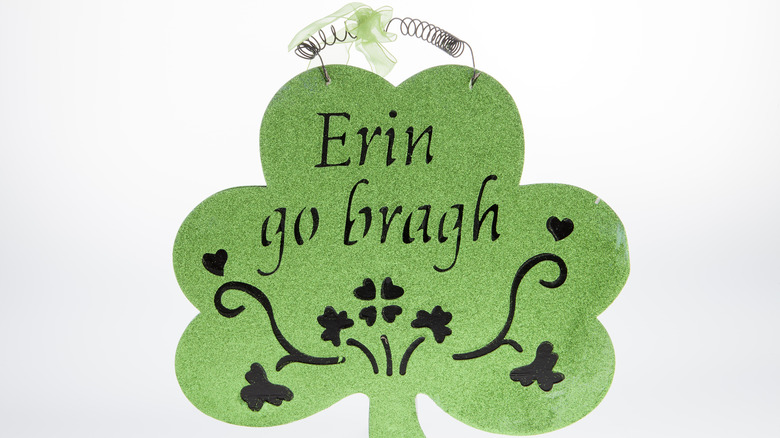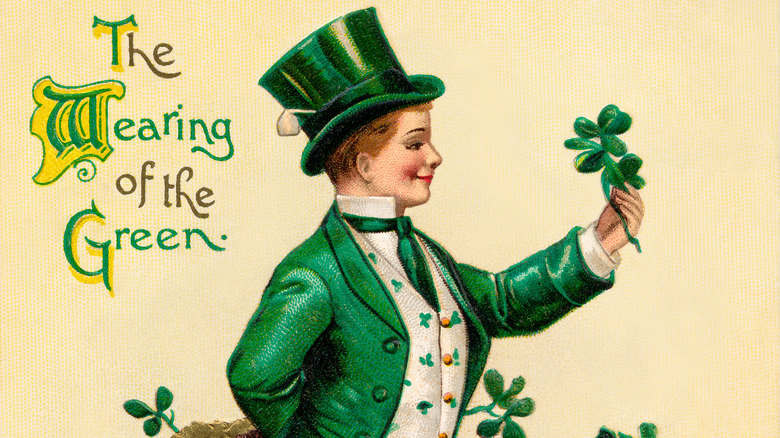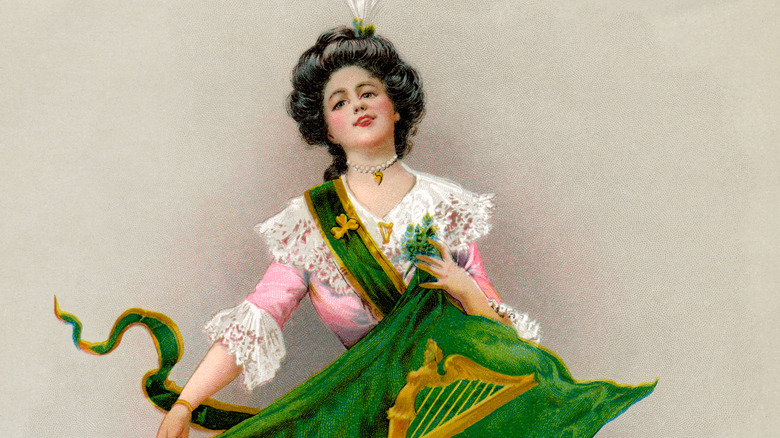What Does Erin Go Bragh Mean?
From beer dyed bright green to pinching a friend who's not wearing green, and from leprechauns to shamrocks, there are many ways we celebrate the St. Patrick's Day holiday. Among the most common is to use the expression "Erin go Bragh," translated from the Irish native language, also called Gaeilge, according to Ireland. For that reason alone, it makes sense that "Erin go Bragh" is shouted in celebration, appended to tweets, and generally used as a "cheers" each March 17th. But what do those three words really mean, and do they really have something to do with everyone's favorite' Irish-themed holiday?
As Dictionary states, "Erin go Bragh" first showed up in Ireland in the late 1790s, but it was probably used before that. Back then, the phrase was mainly used in contexts related to Irish independence from Great Britain. From there, it became generally associated with Irish national history and Irish cultural pride, both in Ireland and around the world. That was especially true in the United States, where many Irish people emigrated from the earliest days of the American colonies onward.
St. Patrick's Day comes to America
The first mention of "Erin go Bragh" stateside is in the Mexican-American War of the mid-1840s, per Britannica. Involved in the conflict was a battalion of Irish-American mercenaries called the St. Patrick's Battalion, with "Erin go Bragh" on their flags (via Parade). According to History, though, the St. Patrick's Day holiday was first celebrated in the American colonies about a century prior to the Mexican-American War, and maybe even earlier than that in Spanish Florida, in the 1730s. That's before "Erin Go Bragh" was even recorded in Ireland.
Does that mean that early St. Patrick's Day revelers weren't shouting "Erin go Bragh" at that point? The answer to that question is lost to history. With heavy Irish immigration in the early American colonies, odds are they very well may have. It's also notable that many St. Patrick's traditions were not Irish at all, but purely American inventions instead. This may have also been the case with "Erin Go Bragh," since traditionally, St. Patrick's Day was a much more solemn affair back in Ireland, according to History.
Ireland until the end of time
As St. Patrick's Day became more and more prevalent in the U.S. and around the world, however, so, too, did "Erin go Bragh" on cards, signs, and in the mouths of people celebrating all things related to the holiday. As we've explained, "Erin go Bragh" is an anglicized version of a phrase or saying from Ireland's native language, Gaeilge, and there are generally a few accepted definitions for what it means, including "Ireland until the end of time," or "Ireland until doomsday," via Parade.
And how is this common expression pronounced? "Erin Go" is said just like it reads, with the "gh" and the end of bragh sounding out like "ah" for something like "Erin go Br-ah," according to Reader's Digest. In response to "Erin go Bragh," it's appropriate to respond with "Cheers," "Happy St. Patrick's Day," or "Sláinte," pronounced "slahn-cha," a word that's also Anglicized from Ireland's native language meaning "good health," via Parade.


